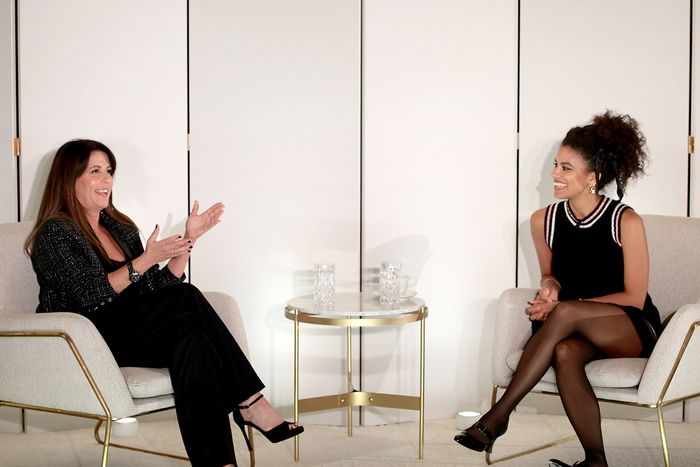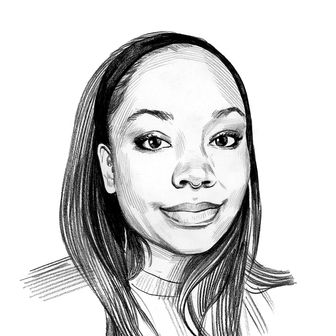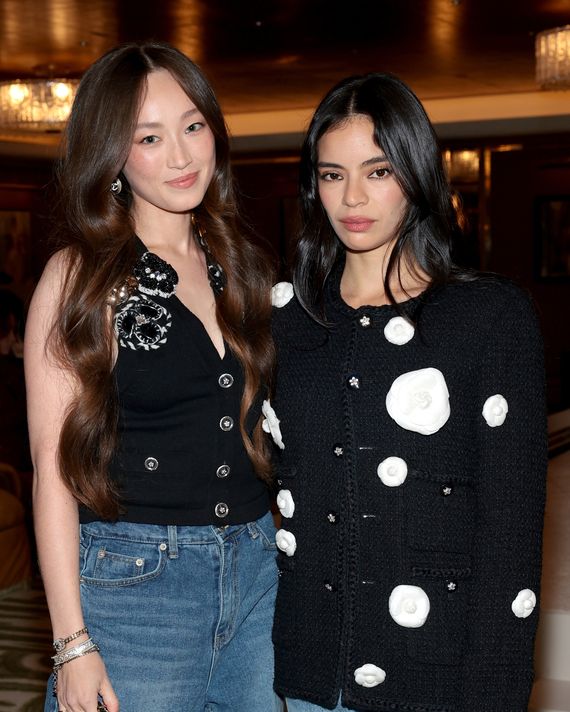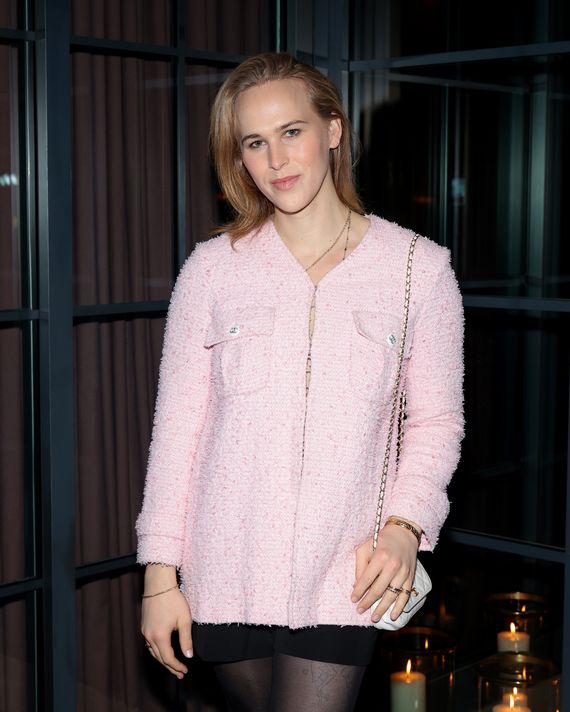
On Thursday night, guests gathered in a screening room at downtown hotel Fouquet’s for a conversation with director and producer Patty Jenkins and actor Zazie Beetz. The conversation was part of a nearly decade-long partnership between Chanel and Tribeca, Through Her Lens, a program offering mentorship, funding, and artistic development to women writers and directors.
Upon arrival, guests were met with quiet chatter in the room that smelled faintly of Coco Mademoiselle while Coco Baudelle, Havana Rose Liu, and Tommy Dorfman wore various versions of the brand’s signature tweeds and quilted bags.
Peering over blue frames, Tribeca co-founder and CEO Jane Rosenthal addressed the room, highlighting the importance of telling women’s stories and empowering women, especially now. After brief introductions, she invited Jenkins and Beetz to tell their own stories.
“There’s no one way into the industry,” Jenkins said of her transition from cameraperson to director. “I realized I need to do something radical to change how people saw me. It was super-scary, but I was 28, and I said I have to do it now or I’m going to lose my nerve.”
The difficulty in making that transition inspired her to join Through Her Lens as an adviser. “I know how hard it is to get into these things,” she says. “You have to provide an opportunity and a hand up to the people behind you and all kinds of diverse voices. Every one of us has a harder time getting through the door.”
Beetz noted that one of the pitfalls female filmmakers face, along with a lack of opportunities and funding, is a lack of diverse and female-led crews behind the scenes. Jenkins’s solution? Finance her own. “I’ve reached out to many wealthy women and said let’s stop asking and start doing, and they’re onboard. I’m trying to work on a new way of doing things that’s not reliant on the same old systems,” she said. “Once you realize your work is being dismissed and you’re never going to be treated the same way, then do it yourself.”
The conversation shifted to complexity and emotion, two things that both want to convey in their work. “I stick to what’s true to me even if it makes the character unlikable,” Beetz explained after the chat. “I think that’s what people connect with when they see a flaw in someone onscreen. That’s a human thing, and I try to lean into that.” She discussed her character Van’s development in season three of Atlanta and the emotional responses she received from those who either agreed or disagreed with her character’s choices. “Whether it’s ugly or pretty, what feels true to me is leaning into that connection.”
Watch the conversation below.




